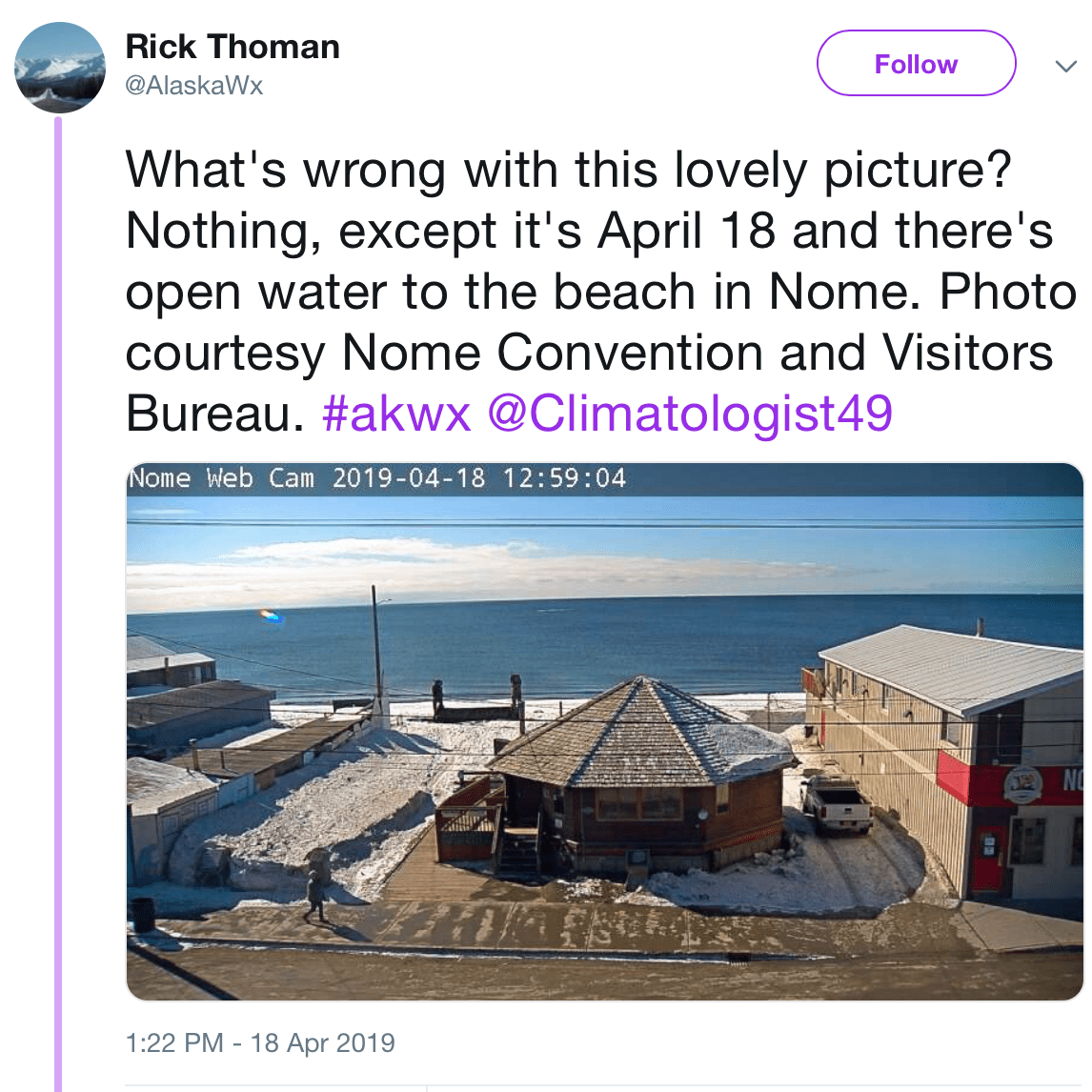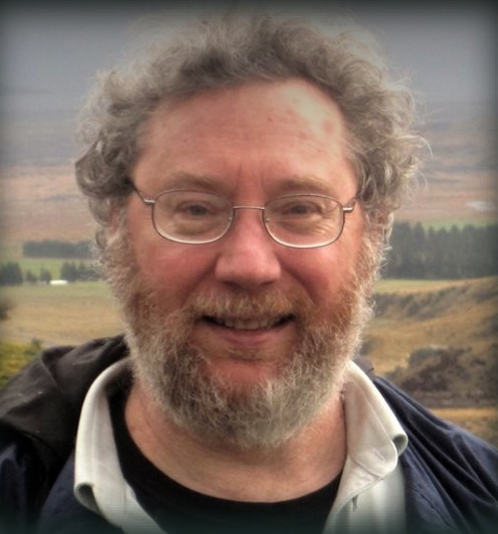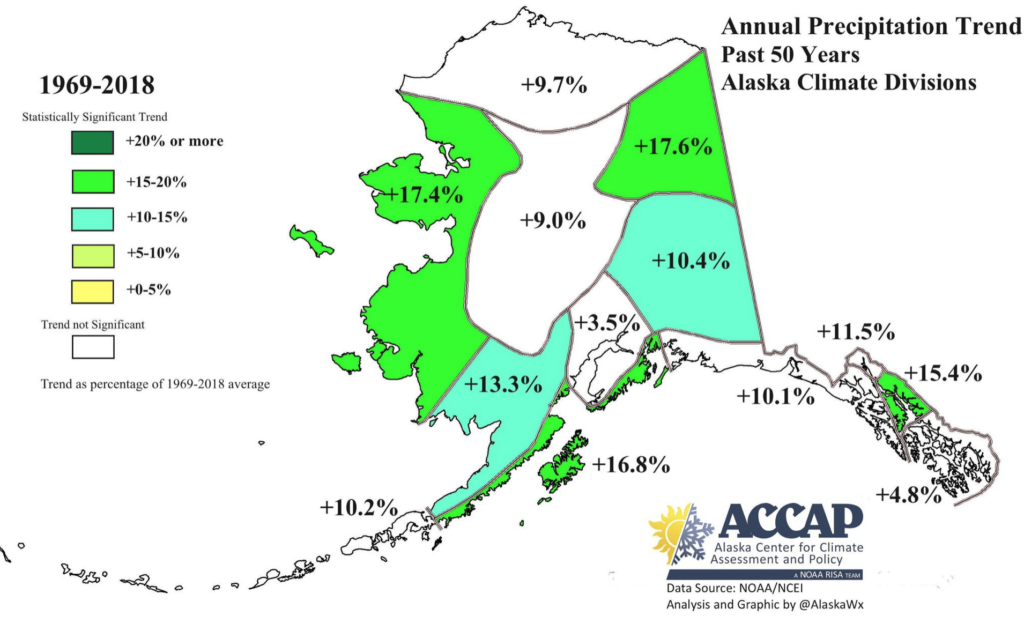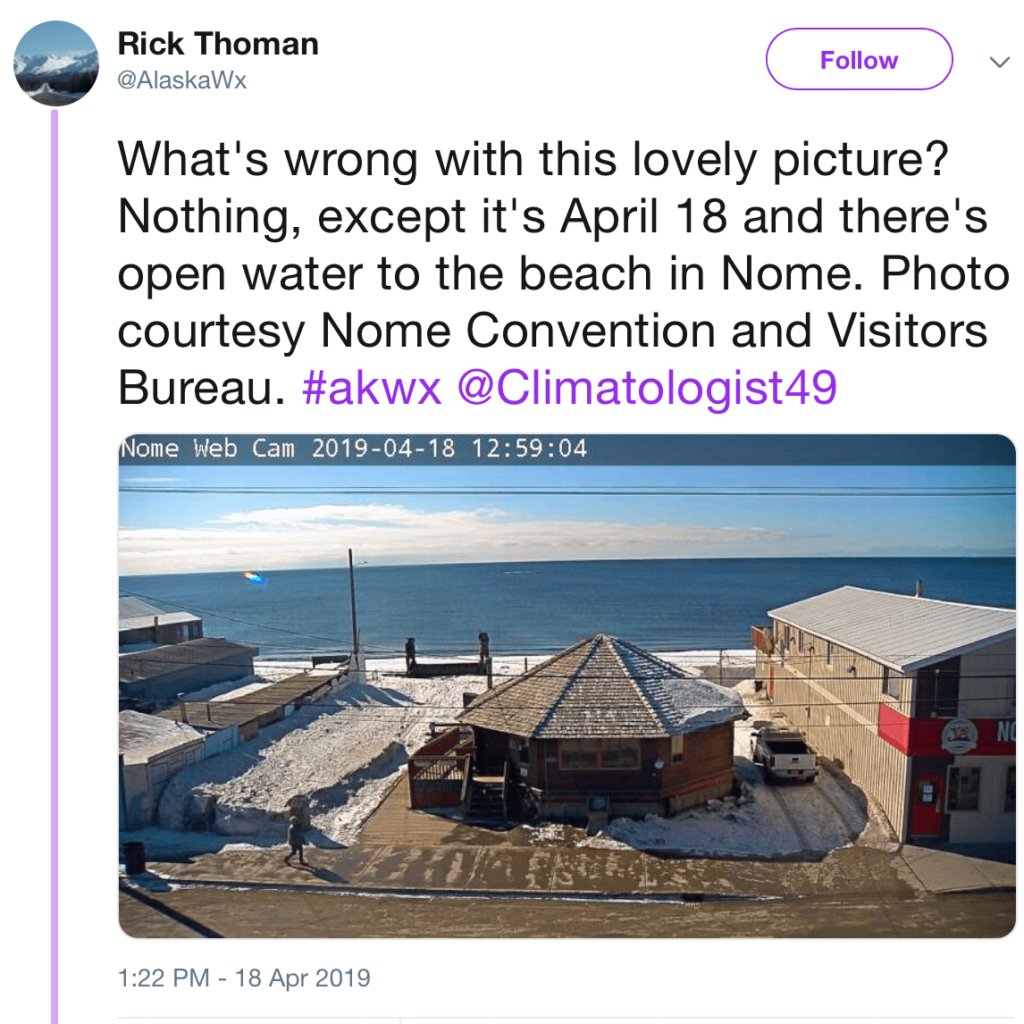
What will climate do to us?
What worries an Alaska climate expert?

When climate specialist Rich Thoman of the Alaska Center for Climate Assessment and Policy at the University of Alaska Fairbanks shared graphs and data with Anchorage residents last week, he pointed out a bevy of facts showing that Alaska is getting hotter, wetter, and more prone to bigger, longer wildfire seasons.
Fish, algae, and other animals and plants are showing up in places they’ve never been seen before. Dramatic changes are taking place that will affect where we can find food, how we get around, and whether our communities can sustain themselves.
There is no new normal, only an ever-rising elevator of change, he said, and though we can already see and feel it happening, the greatest challenges lie ahead.

Old soils release new problems
Wild fire smoke and coastal erosion impact us visibly and directly, but some climate changes aren’t easily seen, yet massive in impact. Thoman frets most over thawing soils.
“Especially in western Alaska, we’re going to see ground thawed that has not been thawed since before the last ice age,” he explained.
The thawing of frozen earth will challenge human infrastructure and communities, for sure, but it will also unfreeze ancient germs and release huge amounts of greenhouse gases—carbon dioxide and methane–that have been held in frozen soil for all of human existence. These greenhouse gases will, in turn, drive further warming.
What this thawing illustrates most, said Thoman, “at the most visceral level, is the magnitude of what’s happened in the last 150 years.”
Taking action for our great grandchildren
The future is partly in our hands. We need to increase energy efficiency, reduce emissions, invest in sustainable energy, and take action now to live in a future that is drastically different, he said.

Already, the changing climate endangers cultures tens of thousands of years old, he said. It imperils public health, mental heath, infrastructure, ecosystems, social systems, and more.
To catch up with these changes and survive them, we need to learn to live in a future that is significantly different than today, he said.
Bigger challenges lay ahead, such as the impact of acidification on shell fish survival and the entire marine ecosystem, he said. “Ocean acidification is the problem of the 21st century.”
We all need to take action and drive policy change that helps us address our climate impacts and adapt. Climate change has left the station and is out of sight, said Thoman. We will not see the full benefits of our actions in our lifetimes, but “perhaps our great grandchildren will.”
Find out more about where Thoman works and his findings in the news: Alaska relies on ice. What happens when it can’t be trusted?


